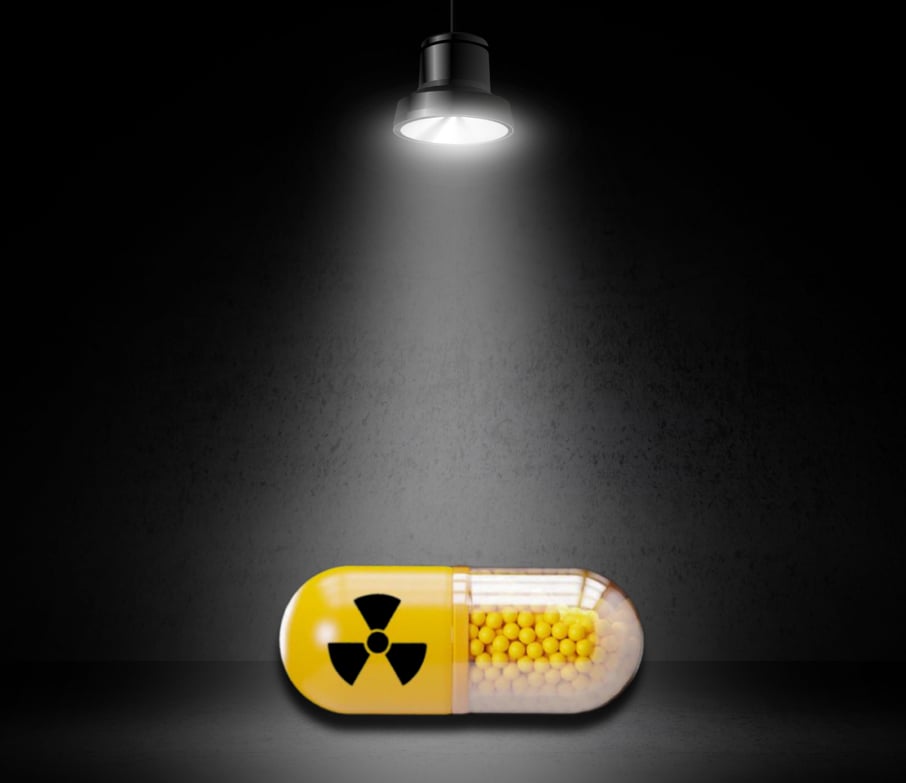The FDA has issued a new draft guidance titled “Oncology Therapeutic Radiopharmaceuticals: Dosage Optimization During Clinical Development.” This document provides a framework for identifying optimal administered activity and dosing schedules for radiopharmaceutical therapies (RPTs) in oncology, with the goal of balancing efficacy and long-term safety.
Public comment is open through October 20, 2025 under Docket No. FDA2025D1757.
Why This Guidance Is Important
Radiopharmaceuticals operate at the intersection of systemic drug therapy and radiation treatment. Unlike small molecules or external beam radiation therapy (EBRT), RPTs present unique challenges for dosage optimization due to their variable biodistribution, decay properties, and long-term toxicity risks.
Historically, dosing for RPTs often followed EBRT-derived organ tolerance limits. However, the FDA now recognizes that this approach may not sufficiently capture the pharmacological or radiobiological nuances of RPTs. The guidance encourages a more flexible, evidence-based approach to identifying dosing strategies that reflect the unique properties of each product.
Key Takeaways from the Guidance
Patient Population
- Trials that explore higher doses or aim to establish a maximum tolerated dose (MTD) should be limited to patients with advanced disease or limited life expectancy.
- In earlier-stage or potentially curable disease settings, doses should remain below previously characterized thresholds to reduce the risk of long-term toxicity.
- Patients with prior EBRT or RPT may still be eligible, but their prior exposures must be factored into dose planning.
Trial Design
- Sponsors are encouraged to start with conservative dose levels based on EBRT literature, then escalate only when justified by emerging safety and efficacy data.
- Fixed dosing schedules and clear limits on cumulative administered activity should be prespecified.
- Long-term safety data should guide the recommended dose for later-stage studies, not just short-term tolerability or MTD.
Safety Monitoring
- Sponsors should monitor for radiation-related adverse events for at least five years after the last dose, or until death if the patient's life expectancy is shorter.
- Radiation safety analysis plans should include prior exposure history and detailed assessments of organ-specific toxicity risks.
- Exploratory biomarkers and sample banking are encouraged to support long-term monitoring and research.
Dosimetry Requirements
- Phase I studies must include dosimetry plans per FDA regulations (21 CFR 312.23).
- Sponsors should use direct imaging of the therapeutic agent whenever feasible or employ well-validated surrogates.
- Dosimetry protocols must provide detailed methodologies, including calibration, segmentation, modeling assumptions, and uncertainty estimates.
- Biological effective dose (BED) calculations are encouraged to support cross-study comparisons and ongoing refinement of organ-specific dose thresholds.
What Sponsors Should Do Now
- Download the full draft guidance and review its recommendations in detail.
- Submit comments by October 20, 2025 through Regulations.gov referencing Docket No. FDA2025D1757.
- Assess and update clinical trial designs to ensure they incorporate long-term follow-up, comprehensive dosimetry, and a risk-based approach to dose escalation.
- Engage early with FDA to align on protocol strategies for products where existing data are limited.
The draft does not address theranostic co-development, individualized dosimetry strategies, or first-in-human dose selection. Sponsors working in those areas should consult the FDA's August 2019 and August 2024 guidance documents for additional detail.
TD2 Oncology Can Help You Navigate Regulatory Change
With decades of experience in radiopharmaceutical development, we partner with sponsors to integrate scientific, operational, and regulatory insight across the development lifecycle. From dosimetry modeling to long-term monitoring strategies, our experts ensure your RPT program meets evolving FDA expectations.
Learn more about our radiopharmaceutical clinical trial services



